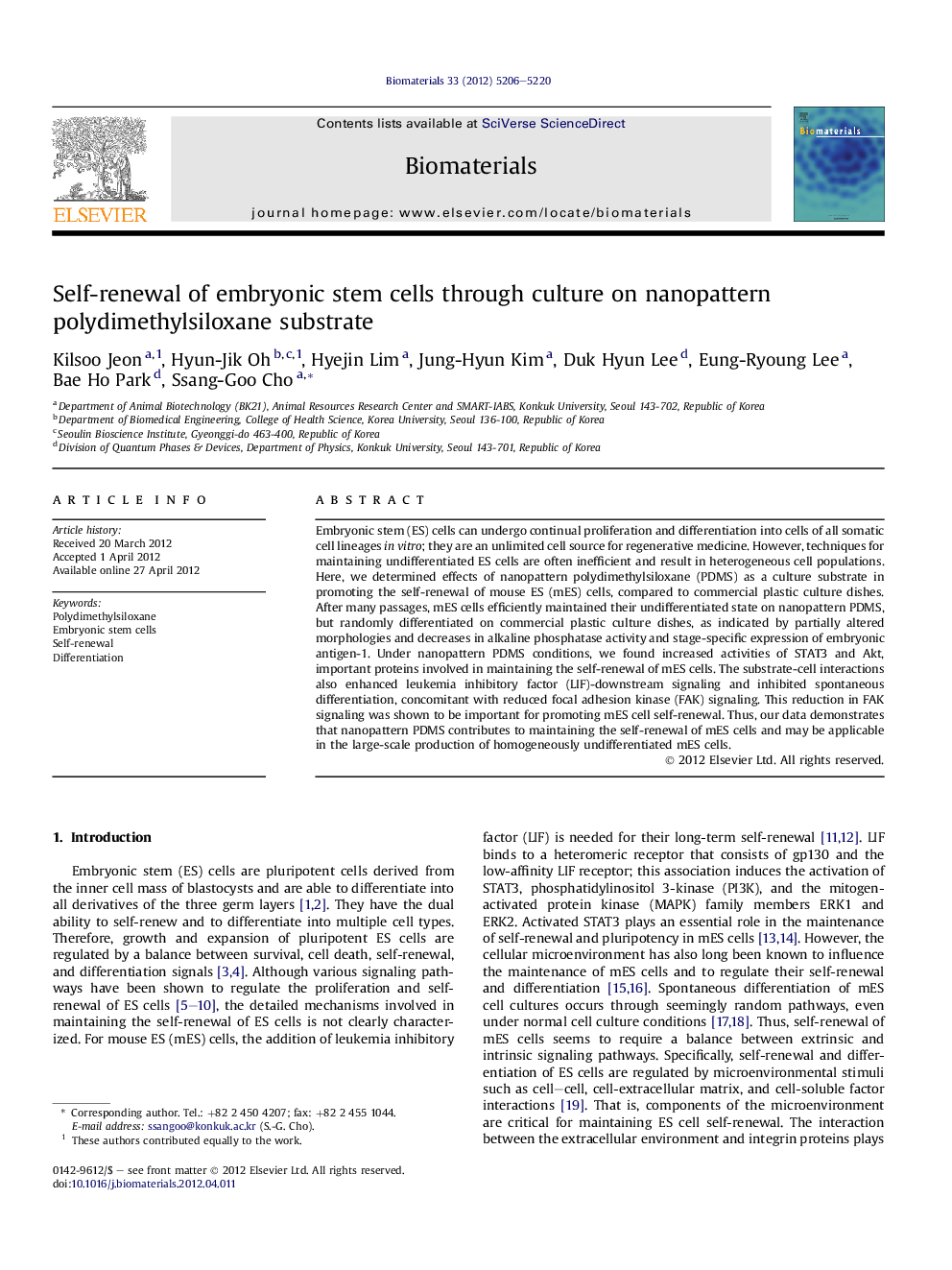| Article ID | Journal | Published Year | Pages | File Type |
|---|---|---|---|---|
| 10229500 | Biomaterials | 2012 | 15 Pages |
Abstract
Embryonic stem (ES) cells can undergo continual proliferation and differentiation into cells of all somatic cell lineages in vitro; they are an unlimited cell source for regenerative medicine. However, techniques for maintaining undifferentiated ES cells are often inefficient and result in heterogeneous cell populations. Here, we determined effects of nanopattern polydimethylsiloxane (PDMS) as a culture substrate in promoting the self-renewal of mouse ES (mES) cells, compared to commercial plastic culture dishes. After many passages, mES cells efficiently maintained their undifferentiated state on nanopattern PDMS, but randomly differentiated on commercial plastic culture dishes, as indicated by partially altered morphologies and decreases in alkaline phosphatase activity and stage-specific expression of embryonic antigen-1. Under nanopattern PDMS conditions, we found increased activities of STAT3 and Akt, important proteins involved in maintaining the self-renewal of mES cells. The substrate-cell interactions also enhanced leukemia inhibitory factor (LIF)-downstream signaling and inhibited spontaneous differentiation, concomitant with reduced focal adhesion kinase (FAK) signaling. This reduction in FAK signaling was shown to be important for promoting mES cell self-renewal. Thus, our data demonstrates that nanopattern PDMS contributes to maintaining the self-renewal of mES cells and may be applicable in the large-scale production of homogeneously undifferentiated mES cells.
Related Topics
Physical Sciences and Engineering
Chemical Engineering
Bioengineering
Authors
Kilsoo Jeon, Hyun-Jik Oh, Hyejin Lim, Jung-Hyun Kim, Duk Hyun Lee, Eung-Ryoung Lee, Bae Ho Park, Ssang-Goo Cho,
